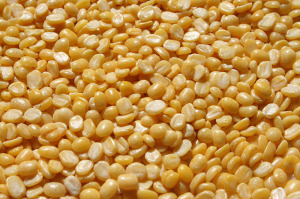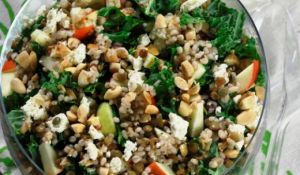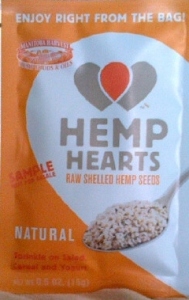
Three Must-Have Plant Proteins for your Menu
Protein has been a hot nutrition topic for the last few years and there are no signs of it slowing down. Have you added more protein to your breakfast over the past year? Have you added different types of protein to your meal plan? If you have done one or both, you’re not alone; many of my clients, friends and family are changing up their meal plans to include high quality protein throughout the day. For this Grow with Nutrition post I’m sharing with you my three must-have plant proteins for your menu.
Why Protein?
In my Grow with Nutrition post Protein 2.0, I explained the need for protein. Basically all living cells use protein for growth, maintenance, healing and repair. About 20% of the human body is made up of protein. Amino acids are the building blocks of protein. Complete proteins refer to foods that contain all the essential amino acids we need to get from our diet for good health. Amino acids are important for transporting and storing of nutrients. Check out my Huffpost blog for more ideas to include all types of protein in your meal plan.
Plant Protein Trend
Over the past decade, with trends such as Meatless Monday, I’ve had more questions about the benefits of eating a plant-based diet. If you are a vegetarian it is important to find plant sources that complement each other to provide complete proteins. This is done by eating multiple types of plant based foods each day, such as combining legumes and nuts and seeds. I recommend consulting with a Dietitian to customize your approach. However, if you just want to add a few plant-based meals to your weekly plan, I suggest experimenting with a variety of grains, legumes, nuts and seeds. My three must-have plant proteins for your menu are almonds, hempseeds and lentils.
 Almonds
Almonds
One ounce (28 grams) or about 23 almonds contains 6 grams of protein, 160 calories and 4 grams of dietary fibre. Not only are almonds a good source of plant protein but research has determined almonds are heart healthy. Consuming 28 grams of almonds daily can significantly improve factors such as decreasing total cholesterol which are associated with heart disease risk (1, 2).
The two most common proteins found in hempseeds are albumin and edestin (3). Both of these proteins contain many of the essential amino acids we require to maintain good health. In addition to protein, hempseeds have a unique ratio of omega 3 and omega 6 fatty acids which have been associated with lowered inflammatory responses, and increased healing rate of injuries and illnesses. Just one ounce (28 grams) of hempseeds has about 9 grams of protein and 9 grams of omegas!
 Lentils
Lentils
A ¾ cup serving of cooked lentils contain about 13 grams of protein. Lentils contain high levels of iron and zinc which are essential nutrients. Consuming enough iron is very important for those who eat primarily a plant based diet. Eating lentils and other pulses may help prevent iron deficiency anemia (4). In addition to protein, and iron, lentils are heart healthy. Research shows consuming lentils daily can improve heart health by lowering LDL (bad) cholesterol and total cholesterol, while maintaining HDL (good) cholesterol (5).
That wraps up my three must-have plant proteins for your menu. Let me know your favorites!
 Recipe
Recipe
Try this delicious Barley and Lentil Salad with Kale, Almonds and Feta from lentils.ca. It is an easy salad to serve year round. To save time, cook the barley and lentils together. And for added crunch garnish with hempseeds. Enjoy!
References:
- Phung OJ, Makanji SS, White CM, Coleman CI. Almonds have a neutral effect on serum lipid profiles: a meta-analysis of randomized trials. Journal of American Dietetic Association. 2009;109(5):865-873.
- Nishi S, Kendall CW, Gascoyne AM, et al. Effect of almond consumption on the serum fatty acid profile: a dose response study. British Journal of Nutrition. 2014; 1-10. doi:10.1017/S0007114514001640
- Callaway JC. Hempseed as a nutritional resource: An overview. Euphytica. 2004;140:65-72.
- Thavarajah D, Thavarajah P, Wejesuriya A, Rutzke M, Glahn RP et al. The potential of lentil (Lens culinaris L.) as a whole food for increased selenium, iron, and zinc intake: Preliminary results from a 3 year study. Euphytica. 2011;180:123-128.
- Bazzano LA, Thompson AM, Tees MT, Nguyen CH, Winham DM. Non-soy legume consumption lowers cholesterol levels: a meta-analysis of randomized controlled trials. Nutrition, Metabolism, and Cardiovascular Diseases. 2011;21(2):94-103.

 Hempseeds
Hempseeds